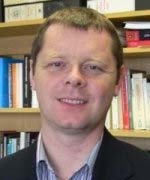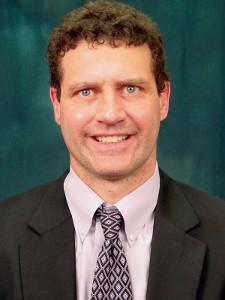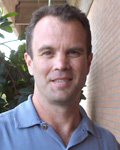Job Position | Assistant Professorship Utrecht University, Human Geography
Assistant Professors in Human Geography, International Development Studies and Spatial Planning (4 x 0,8/1,0 FTE)
Job description
The Department of Human Geography and Spatial Planning has developed the challenging research programme ‘Urban Futures: Transitions towards Economic and Social Sustainable Cities’. In this programme faculty members from different sub disciplines of human geography and planning work closely together on two main research themes: ‘Economic Urban Transitions’ and ‘Social Urban Transitions’. Within this programme several interrelated topics are studied: urban economic resilience, networks and flows in and between urban regions, healthy urban living, urban inequalities and diversities, transnational mobilities, and smart urban governance. The Department is also responsible for one undergraduate programme in Human Geography and Spatial Planning and for a number of graduate programmes in urban and economic geography, spatial planning, international development studies, and GIS.
Our ambition is to further develop the two integrative research themes with a focus on the issues and topics mentioned. From an education perspective, the Department wants to strengthen faculty expertise in: urban and regional economic development and policy, geography of urban social issues, transnational mobility and urban life, land and real estate development, and GIS, all subjects in the context of the global North and South. This will be achieved by appointing four excellent assistant professors who are able to contribute to these ambitions from their respective specializations in urban and economic geography, international development studies, spatial planning and related disciplines.
Requirements
We are looking for colleagues who show leadership and who initiate, both independently and in collaboration with other researchers and external partners, new research projects within the ‘Urban Futures’ research programme, thereby enriching the current research agenda. Next to research duties, the assistant professor will have teaching tasks in BSc- and MSc-programme and will be involved in PhD-supervision. We envisage positions with 0.5 fte research and 0.5 fte teaching for the next four years of appointment.
We seek highly motivated candidates who hold a PhD in Human Geography, Spatial Planning or a related discipline. If you
- have experience in conducting scientific research leading to high-quality publications
- have extensive experience in qualitative and/or quantitative methods of research and/or GIS
- have a good (international) research network
- see added value in collaborating within interdisciplinary research projects
- are able to acquire research funding in competition, preferably with a proven track record
- are enthusiastic about – and have experience in – teaching and supervising students from undergraduate to PhD levels
- are willing and confident to teach subjects beyond your niche of expertise
- have a Basic Teaching Certificate (BKO) or similar teaching qualification, or are willing to acquire such a qualification as soon as possible
- are proficient in both written and spoken English
- have the willingness to learn Dutch (passive proficiency required, in case- of a non-Dutch speaking candidates)
- are a team player, looking forward to contributing to, and collaborating with different disciplinary groups within and outside our department
we encourage you to apply and are looking forward to meeting you.
Candidates with a background in Human Geography, International Development Studies and/or Spatial Planning have our preference, however candidates with a different disciplinary background and with an interest in Human Geography and Spatial Planning are also invited to respond.
Conditions of employment
Employment conditions are based on the Collective Labour Agreement of the Dutch Universities. We offer a fulltime position that starts with an initial period of two years, with an intended extension of either another two years or a conversion to a permanent position, subject to performance. The gross monthly salary is based on experience and qualifications, and ranges from a minimum of € 2,920 to a maximum of € 4.654,- on a fulltime basis (as of January 2016). The salary is supplemented by a holiday allowance of 8% per year and a year-end bonus of 8.3%.
We offer a pension scheme, collective insurance schemes and flexible employment conditions (multiple choice model). Facilities for sports and childcare are available on our campus, which is only 15 minutes away from the historical city centre of Utrecht. For more information visit Working at Utrecht Universit
Additional information
More information can be obtained from prof. Martin Dijst, email: This email address is being protected from spambots. You need JavaScript enabled to view it.
https://www.academictransfer.com/employer/UU/vacancy/33954/lang/en/
** EXTENDED DEADLINE - JUNE 7TH ** CALL FOR PAPERS - 18th Annual BIOECON Conference - Cambridge, UK, 14-16 September 2016
|
|
|
|
Third Call for Papers - Second International Symposium on Cellular Automata Modeling for Urban and Spatial Systems (CAMUSS 2016)
|
||
|
Programa general - 6ta conferencia anual SAER
Dear All, we attach the Preliminary Program for the Seminar. You can go to www.saerargentina.com,ar to see more details of the Seminar.
We are waiting for you!
Kind regards!
Evelyn Colino - Pedro Elosegui
Estimados, adjunto enviamos el programa general (preliminar) del encuentro.
No dejen de revisar la página www.saerargentina.com.ar donde encontrarán los datos de hoteles, inscripción y novedades.
Los esperamos!
saludos cordiales
Evelyn y Pedro
ESPON News
| Inspire Policy Making by Territorial Evidence | |||||
|
Policy Brief “Territorial Implication of Better Regulation for Europe towards 2050” Better Regulation, with the aim to lead to EU policies achieving their objectives in the most effective and efficient way, is one of the central themes of the Dutch EU-Presidency. Upon request the ESPON EGTC analysed possible long-term effects in case the design and implementation of the regulatory framework would not be aligned with Better Regulation. This policy brief shows the necessity of better regulation by addressing two types of EU policies: Cohesion policy and the Transport Infrastructure policy. More Workshop at the Metropolitan Solutions 2016 Berlin, 1st of June 2016 –Only two weeks to go before theWorkshop “European second tier cities in cohesive territorial development” which takes place in Berlin on the 1st of June in the framework of the Metropolitan Solutions 2016, the world’s biggest combined congress and expo for smart cities. All speakers have confirmed their participation:
Register HERE until Friday 27 May 2016 at 15h00. When you have registered you will receive a voucher code that you can use to get your free ticket.For more information about the event and the programme, please visit the ESPON`s website Seminar “Territory matters: keeping Europe and its regions competitive” Only 13 days left to register, register now! Amsterdam, 16 and 17 June 2016 - The Seminar offers an excellent meeting and discussion forum and brings together policy makers and experts to share latest territorial evidence and to debate challenges around themes relating to the regional competitiveness. During the event the following themes will be taken up:
The full updated programme is online at the ESPON`s Website New ESPON EGTC Director At a meeting of the ESPON 2020 Cooperation Programme held in Brussels on 17 March 2016, the appointment of Ms Ilona Raugze as new ESPON EGTC director was announced. Ilona joined the ESPON EGTC, which includes 15 staff, on the 1st of May 2016. More |
ESPON 2020 – More information
ESPON EGTC
4 rue Erasme, L-1468 Luxembourg - Grand Duchy of Luxembourg
Phone: +352 42 59 91 4700
Email: This email address is being protected from spambots. You need JavaScript enabled to view it.
www.espon.eu, Twitter, LinkedIn
The ESPON EGTC is the Single Beneficiary of the ESPON 2020 Cooperation Programme.
The Single Operation within the programme is implemented by the ESPON EGTC and co-financed
by the European Regional Development Fund, the EU Member States and the Partner States,
Iceland, Liechtenstein, Norway and Switzerland.
“Nurturing New Talent” – PhD Student Workshop, 19-20 May, 2016, Bucharest, Romenia
The Romanian Regional Science Association, in collaboration with the Bucharest University of Economic Studies – Faculty of Administration and Public Management organises on May 19-20, 2016 the international workshop entitled “Nurturing New Talent” – a PhD workshop in regional science supported by the Regional Science Association International (RSAI).
Special guests are Prof. Dr. Andrés Rodriguez-Pose - London School of Economics, RSAI President, Prof. Dr. Tomaz Dentinho - University of Azores, RSAI Executive Director, Prof. Dr. André Torre -Research Professor at the National Institute for Agronomic Research, University Paris-Saclay, ERSA Vice-President and member of the RSAI Council and Mrs. Aura Carmen Raducu - former Romanian Minister of European Funds, who will deliver keynote speeches and will offer feedback to the PhD students’ presentations.
Besides the PhD students from the Bucharest University of Economic Studies and other Romanian universities who will present their papers, all interested PhD students are invited to attend the workshop.
Program attached.
2016 elected RSAI Fellows
RSAI is pleased to announce the election of the following Fellows in 2016:
|
University of Groningen, THE NETHERLANDS |
The Ohio State University, USA |
Arizona State University, USA |
REMINDER: Call for hosting AESOP 2017 Heads of Schools Meeting
|
|||
|
Atención: AMPLIACIÓN DEL PLAZO de recepción de abstracts: XLII Reunión de Estudios Regionales - 16 al 18 de noviembre de 2016 - Santiago de Compostela
Valued colleague, dear friend,
Due to the high number of petitions received, we have decided to extend the abstract submission deadline for the XLII Reunión de Estudios Regionalesuntil June 3th.
We take this opportunity to remind you that the Confernce will take place at the Faculty of Economics and Business Studies at the University of Santiago de Compostela, from the 16th to the 18th of November, 2016 with the motto "Thirty years of European integration from the regional perspective: Past results and future challenges". Any work related with Regional Science will have its place within the wide Conference Programme, organized around 14 subject areas and 8 special sessions.
We will be grateful if you spread this information among any person that may be interested to participate. Participation may take the form of complete papers or even unfinished research work in the form of a long abstract with a minimum lenght of 1,500 words. Master and PhD first-year students may attend all the Conference sessions and events paying a reduced fee and, if they want to discuss their future research plans, they are allowed to participate in special poster sessions.
You can find all the information for registration and submission at the XLII edición de la Reunión de Estudios Regionalesweb page.
Looking forward to meet you at Santiago!
Greetings,
2016 International Conference on Energy and Environmental Science (ICEES 2016) Thammasat University, Rangsit Campus, Thailand | August 29-31, 2016
Interest in spatial econometrics has increased enormously in the last two decades during which time we have observed an incredible explosion in the number of applied disciplines interested in the subject and in the number of publications that have appeared in scientific journals. Major applications of spatial econometrics that are of interest to regional scientists include areas such as agricultural economics, industrial organization, health economics, managerial economics, urban planning, education, land use, criminology, public finance, economic development, innovation diffusion, environmental studies, labor, resources and energy economics, transportation, real estate, marketing, and many others. But the list of regional sciences that can benefit from the advances in spatial econometrics is, in fact, a lot longer and likely to further increase in the future. These sessions will include both theoretical and empirical contributions related to spatial econometrics in a diversity of applied fields.
If you are interested participating in these special sessions please contact Giuseppe Arbia at This email address is being protected from spambots. You need JavaScript enabled to view it.
About Us
The Regional Science Association International (RSAI), founded in 1954, is an international community of scholars interested in the regional impacts of national or global processes of economic and social change.





